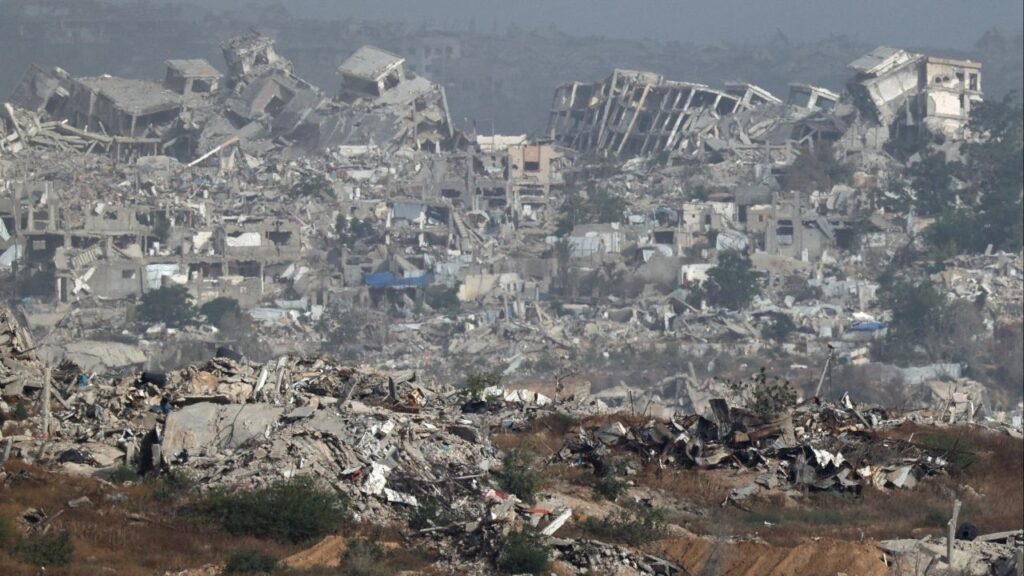Share
MEXICO CITY — The United States pledged $5.8 billion in aid and investment Tuesday for strengthening government and economic development in Central America, and another $4.8 billion in development aid for southern Mexico.
The U.S aid aims to promote better security conditions and job opportunities as part of a regional plan to allow Central Americans and Mexicans to remain in their countries and not have to emigrate.
“In sum, I think this is good news, very good news for Mexico,” Ebrard said.
Mexico’s President Praises Aid Package
Newly inaugurated President Andres Manuel Lopez Obrador waxed poetic about the plan to provide jobs so people won’t have to emigrate.
“I have a dream that I want to see become a reality … that nobody will want to go work in the United States anymore,” Lopez Obrador said at a morning news conference before the announcement.
The combination of public and private investment for the stay-at-home effort doesn’t require congressional approval, unlike Trump’s signature project to stem illegal immigration — a border wall.
The U.S. State Department issued a simultaneous statement saying “The United States is committing $5.8 billion through public and private investment to promote institutional reforms and development in the Northern Triangle,” a term that refers to Honduras, Guatemala and El Salvador.
Lopez Obrador’s administration has said it is also interested in agricultural, forestry and tourism projects in southern Mexico, and the U.S. said it will contribute to those efforts.
Breakdown of $4.8 Billion for Mexico
The U.S. Overseas Private Investment Corporation “is prepared to invest and mobilize $2 billion in additional funds for projects in southern Mexico that are viable and attract private sector investment,” according to the statement. “This amount is in addition to the $2.8 billion in projects for Mexico through OPIC’s current investment pipeline.”
Ebrard said “The commitments established here signify more than doubling foreign investment in southern Mexico starting in 2019.”
Southern states like Chiapas and Oaxaca are home to many of Mexico’s poorest communities. Lopez Obrador, who took office Dec. 1, has sought to make development in that region a priority, including plans for a “Mayan train” stretching from touristy parts of the Yucatan Peninsula down to Chiapas.
Will Mexico Provide Anything in Return?
It was unclear if Mexico would give anything in return. A planned announcement about Mexico’s migration policy was postponed until Wednesday.
The United States has reportedly wanted Mexico to allow migrants seeking asylum in the United States to remain in Mexico while their applications are processed.
Ebrard had previously suggested that about $25 billion in U.S. investment would be an appropriate figure for what Mexicans and Central Americans have dubbed “The Alliance for Prosperity” in the region.
From Victims to Perpetrators: Israeli Soldiers’ Nazi Comparisons and the Unfolding War Crimes in Gaza
1 hour ago
Downtown Housing Could Rise in Many California Cities, but Barriers Remain
2 hours ago
Dear Mayor and City Council, Fresno’s Housing Bottlenecks Are a Modern Form of Redlining
2 hours ago
Iran Enacts Law Suspending Cooperation With UN Nuclear Watchdog
2 hours ago
Trump Vowed to Dismantle MS-13. His Deal With Bukele Threatens That Effort.
3 hours ago
Valley Crime Stoppers’ Most Wanted Person of the Day: Logan Ryan Martin
3 hours ago
Poll: Most Americans Say National Divide, Political Violence Threaten Democracy
3 hours ago
US Judge Blocks Trump Asylum Ban at US-Mexico Border, Says He Exceeded Authority
19 minutes ago
Categories

US Judge Blocks Trump Asylum Ban at US-Mexico Border, Says He Exceeded Authority

From Victims to Perpetrators: Israeli Soldiers’ Nazi Comparisons and the Unfolding War Crimes in Gaza

Downtown Housing Could Rise in Many California Cities, but Barriers Remain

Dear Mayor and City Council, Fresno’s Housing Bottlenecks Are a Modern Form of Redlining

Iran Enacts Law Suspending Cooperation With UN Nuclear Watchdog











